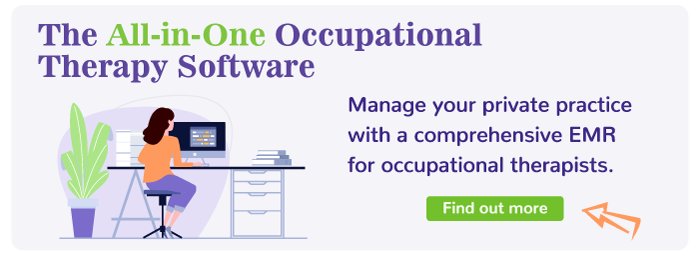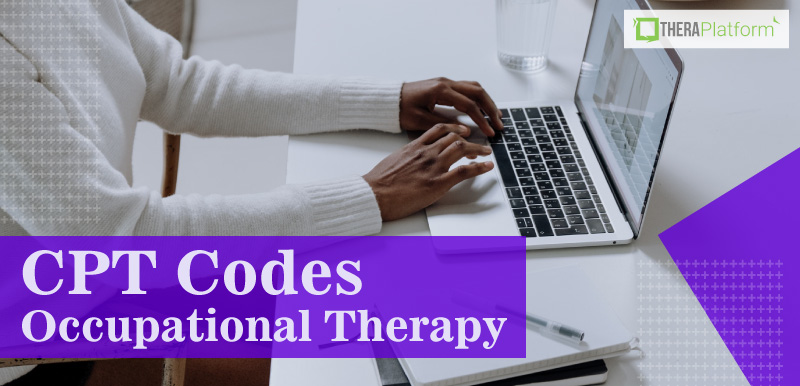AMPS

Assessment of Motor and Process Skills (Assessment of Motor and Process Skills) was designed by an occupational therapist, and is a standardized activity for daily living performance analysis for clients two years of age and older with or without a medical diagnosis or disability.
Its purpose is to measure the quality of ADL task performance in a natural environment. The Assessment of Motor and Process Skills captures details of the interactions between client factors, environmental factors, and the ADL task. Goals for the Assessment of Motor and Process Skills include determining eligibility for services, creating goals, providing activity ideas for clients, and aid in treatment planning to support occupational engagement during a daily routine.
Understanding the Assessment of Motor and Process Skills
This assessment is standardized and has historically required specialized certification to administer. Results are norm and criterion-referenced, offering a variety of ways to compare results and interpretations. The Assessment of Motor and Process Skills also requires software for scoring and can track progress over time, even slight improvements that other assessments may not capture. Critics of this assessment argue that a limited number of clinicians hold certification to administer this test, which means this test is not as widely used as other OT assessments.
Administering the Assessment of Motor and Process Skills
The Assessment of Motor and Process Skills is administered in a task-relevant setting and requires approximately 20-40 minutes for administration. On March 30, 2023, Assessment of Motor and Process Skills scoring software was published and discontinued on March 31, 2023, with a limited license to allow certified clinicians to continue using the Assessment of Motor and Process Skills. Certification courses and the purchase of scoring software are on an “indefinite hold” per the Center for Innovative OT Solutions with limited explanation available for why courses are on hold at this time.
Clinicians start with a client and caregiver interview to determine which ADLs and IADLs are relevant and meaningful for the client. ADL tasks are selected and then performed and analyzed by the clinician. After the client completes the Assessment of Motor and Process Skills ADL tasks, the certified OT scores the client on ADL motor and process skill items according to criteria found in the Assessment of Motor and Process Skills manual using a four-point scale. The lower the number, the more severe a deficit experienced. Assessment data is entered into computer scoring software to rate performance skills.
This assessment offers occupational therapists a thorough measurement of ADL performance with the addition of the client’s level of physical effort, coordination, efficiency, and safety when evaluating ADL independence. Results aid in goal creation, treatment planning and can be readministered to monitor progress over time. The Assessment of Motor and Process Skills measures effort, efficiency, safety, and independence when measuring the quality of ADL task performance.
Performance skills | Description |
|---|---|
Body position | Quality of balance, need for environmental support or assistive devices, use of natural body mechanics (performing tasks with an awkward body position of long reach). |
Obtaining and holding objects | Effort required or stiffness for reaching, bending quality when sitting or reaching, griping interactions with items, in hand manipulation, and coordination when using two body parts |
Moving self and objects | Effort required for instability when pushing/pulling, ability to lift or slide items, regulation of force or speed, flow of movements, safety during carrying and functional mobility. |
Sustaining performance | Fatigue, endurance, pace, or tempo of activity, attention, achieves goal directed tasks. |
Applying knowledge | Choices made during activity, selecting appropriate tools for activity, handles tools appropriately, asks questions that are known or ability to read directions. |
Temporal organization | Sequence or pattern of movements, hesitates or omits steps, interrupts, logical ordering of steps, termination of steps and tasks. |
Organizing space and objects | Logical organization of obtaining items, brings multiple items together, spatial arrangement of clothes or workspace, maneuvering around objects through space. |
Adapting performance | Notices placement of items, if items are on/off, notice of alignment of items as necessary, adjusts workstation as needed, accommodates as needed during task, and benefits of task achieved with persistent problems in ADL motor process skills. |
Engagement and rapport are supported through this assessment with use of an interview, allowing the client an active role in deciding which ADL tasks are meaningful to them and a chance to discuss individual difficulties in their daily routine. Once the tasks are selected, the administration may move quickly and generally the client and or caregiver has agreed the task is relevant, maintaining engagement through the assessment.
Using Assessment of Motor and Process Skills results for treatment planning
Working through the Assessment of Motor and Process Skills assessment provides a list of ADL tasks that can be performed in a variety of settings as well as a list of client factors that can provide additional detail about the barriers and areas for improvement that clients may face. Performance-based measures such as the Assessment of Motor and Process Skills, can be used multiple times throughout a treatment plan to monitor progress, and clinicians have reported capturing even subtle improvements in ADL tasks when using the Assessment of Motor and Process Skills to monitor progress.
Many resources agree that the Assessment of Motor and Process Skills is a valid assessment, but it has limited accessibility with a limited number of certified clinicians able to administer the assessment. Certification includes in-depth information and guidance on using the Assessment of Motor and Process Skills assessment in practice with information to help clinicians interpret and share interpretative results with clients, caregivers, and other professionals on the client's care team.
Collaborating with caregivers and other professionals
Clients have an active role during the Assessment of Motor and Process Skills administration with the use of a client interview to determine relevant ADL tasks and which daily tasks are meaningful for goal setting. Historically, deciding to administer the Assessment of Motor and Process Skills provided additional opportunities for learning courses that assisted clinicians in sharing interpretive data with other professionals to support coordinated care communication and overall treatment goals. The Assessment of Motor and Process Skills is useful in many settings across an individual's lifespan, so it makes a good assessment for clients who may need occupational therapy over time or for multiple years, ensuring continuity of care.
Start 30-day Free Trial and explore TheraPlatform. HIPAA Compliant Video and Practice Management Software for Therapists.
Conclusion
Certified clinicians trust the Assessment of Motor and Process Skills to establish baseline performance during ADL participation and to determine whether OT services are needed. Additionally, the Assessment of Motor and Process Skills can monitor progress over time, and help with goal setting and treatment planning.
A certification course is required to administer the Assessment of Motor and Process Skills, and currently, applications are on "indefinite hold" which may hinder new clinicians' access to this assessment. Visit the Center for Innovative OT Solutions for more information about Assessment of Motor and Process Skills courses and certification.
Resources
Theraplatform, an all-in-one EHR, practice management and teletherapy tool built for therapists, helps offer several resources in one place. They offer a free, 30-day trial with no credit card required. Cancel anytime.
More resources
- Therapy resources and worksheets
- Therapy private practice courses
- Ultimate teletherapy ebook
- The Ultimate Insurance Billing Guide for Therapists
- The Ultimate Guide to Starting a Private Therapy Practice




